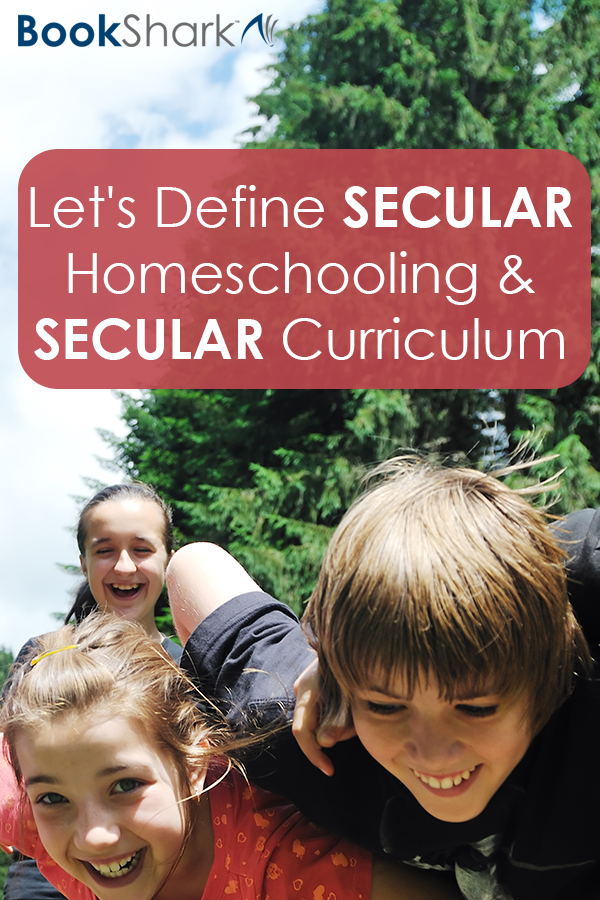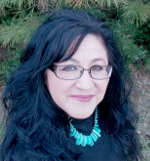




Let’s Define Secular Homeschooling & Secular Curriculum

Purchasing a secular kindergarten program when I started teaching my first child, I thought I had a full grasp of the definition of secular homeschool curriculum. That was 19 years ago. I’ve since learned that the meanings of secular homeschooling and secular curriculum are not as straightforward as I may have thought.
Here are some considerations to help you dissect what is a secular homeschooler and what is secular curriculum.
Realize that Words Can Have Different Meanings
Not all curriculum providers embrace the same definition to the word secular, and the difference often comes out of the personal views of the author or publisher. It’s not that anyone is trying to be deceptive. It’s just that the same words can mean slightly different things.
By way of a silly example, someone from Chicago may balk at what a Southerner calls pizza—some flimsy, thin crust concoction that is nothing like the doughy slab that is more common farther north. Is this a conspiracy aimed to deceive? No. This is a difference in interpretation, experience, and vocabulary.
What Does Secular Mean?
That’s why you need to dig around and find out exactly what kind of pizza (or curriculum) you are getting to avoid disappointments! When shopping for homeschool materials, scour through the company’s About page, FAQ, and the Scope and Sequence to understand both the methodology and worldview of a program. When in doubt, contact the publisher outright and ask!
Don’t Confuse the Curriculum with the Education
Maybe you see a phrase like BookShark uses—faith-neutral curriculum. Don’t confuse that label with a faith-neutral education because there is a difference. You may select a faith-neutral curriculum and be a secular homeschooler. Or you may choose a faith-neutral curriculum and be a Muslim or Christian homeschooler. It’s like a game of mix and match when it comes to labels!
One common thread all homeschool families can agree on regardless of their views is the right to educate our children in our belief system. You are the ultimate teacher of your views whether they are faith-based or non-religious. A curriculum can help you do that, but ultimately the job is yours. The day to day teaching, tutoring, and modeling your beliefs is the true education. Faith-neutral curriculum gives you the freedom to make deliberate choices. So a family that chooses a faith-neutral curriculum may actually have a faith-steeped education—or not. One isn’t necessarily connected to the other.
A few decades ago, the line between secular and religious homeschoolers seemed clearer. Either you were a secular family who did not believe in religion and adhered to evolution or you were a religious (usually Christian) family that believed in creation. However, this simple dichotomy is no longer the case in the homeschool world.
Today, secular homeschool families may be identified as religious or not religious.
What is the Definition of Secular Homeschooling?

For example, a family may choose to take a secular or neutral approach to education while still adhering to a personal system of faith. They are secular homeschoolers but they may be Muslims, Hindus, Christian, or Jewish. Their faith is something separate from their home education.
Secular homeschoolers who are not religious take many forms:
- families who purposely choose to not teach religion
- families who are only focused on academics without religion
- families who are not especially devout and prefer to let the child make his own choice as he grows
- families of mixed faith who want to honor two different cultural backgrounds
- families who want to teach their children that there is no one right religion but to respect all religions
- familes who are atheist
- families that espouse paganism
All of these families may consider themselves secular homeschoolers, but their beliefs are vastly contrasting!
Other homeschoolers may choose a secular or faith-neutral homeschool program while being very committed to their religious beliefs. They may buy a secular program but not consider themselves secular homeschoolers because they weave their beliefs into the tapestry of the education they provide their children.
For example, if they are Christian, they want to teach their children the Bible and want to be ensured that their curriculum is neutral of any anti-faith bias or government influence.
Also, there are plenty of religious homeschoolers who have less popular (or less orthodox) beliefs and would prefer to teach their own way of thinking when it comes to matters of the age of the earth, the origins of mankind, etc. They choose to use secular homeschool curriculum because they it’s easier to teach their views using resources from their worship center or from their own research. These homeschoolers may buy a secular curriculum, but they wouldn’t be appropriately labeled secular homeschoolers.
Surprise! This post didn’t succinctly define secular homeschooling or a secular homeschool. And that’s the entire point. These labels are general guides, and if you truly want to know what they mean, you’ll have to dig a bit further by asking probing questions—either from a curriculum provider or from a homeschool parent.
It’s hard to categorize all secular homeschool families with a single description because they hold different beliefs and motivations to educate at home. Homeschooling is constantly changing, and with it the meaning of secular curriculum and secular homeschooling also changes. What’s not hard is savoring the many choices of curriculum, cherishing the moments of learning together, and making lifetime memories regardless of our personal beliefs. We all believe in this—our kids are best served by being educated at home by their parents.

About the Author
Tina Robertson celebrated the graduation of Mr. Senior in 2013 and Mr. Awesome in 2015. Because of her love for new homeschoolers, she mentors moms through her unique program called New Bee Homeschoolers. She loves all homeschoolers, though, as she shares her free 7 Step Curriculum Planner, unit studies, lapbooks and homeschooling how tos. She can’t sing, dance, or craft, but she counts organizing as a hobby. She is still in the homeschool trenches blogging at Tina’s Dynamic Homeschool Plus.
